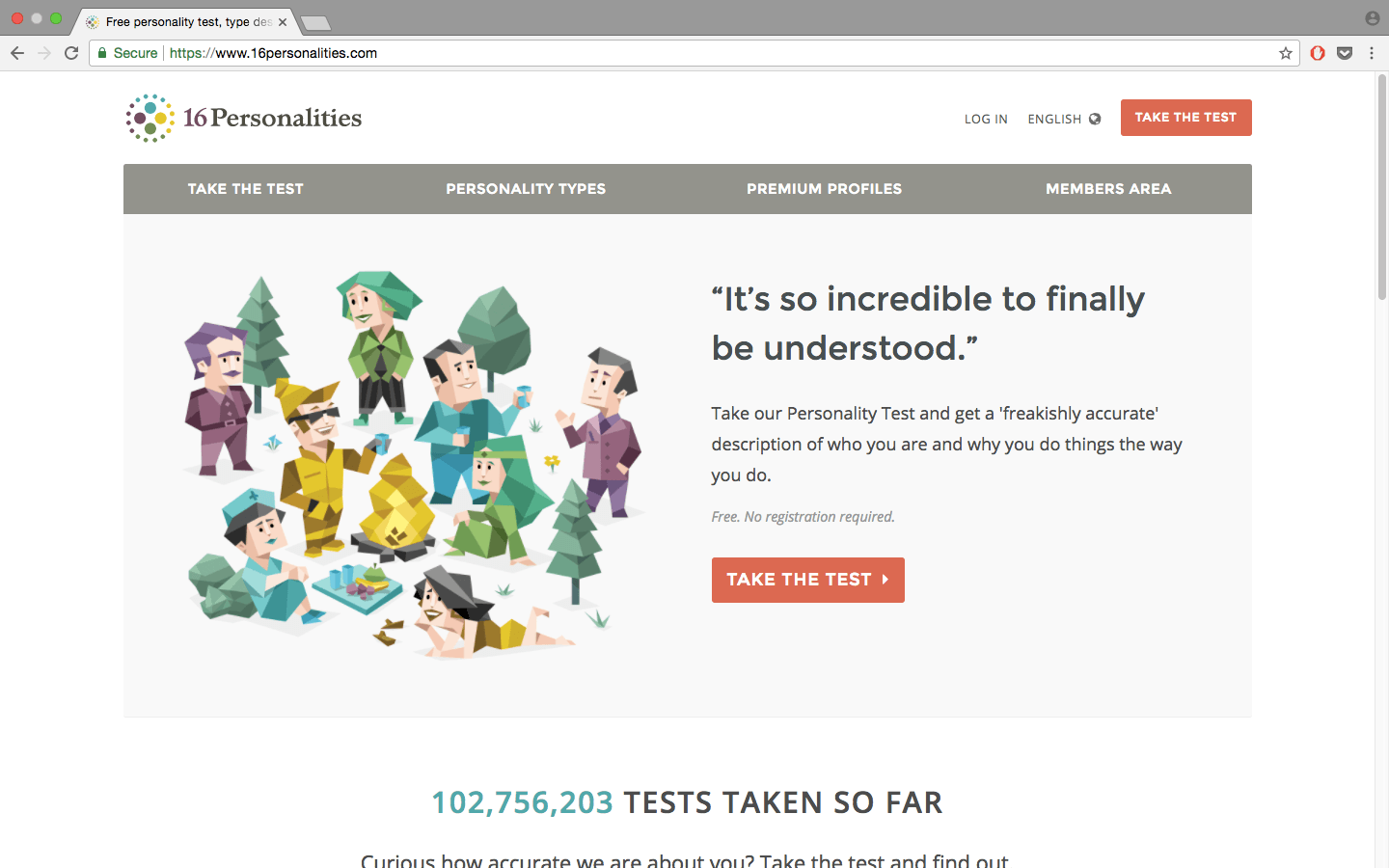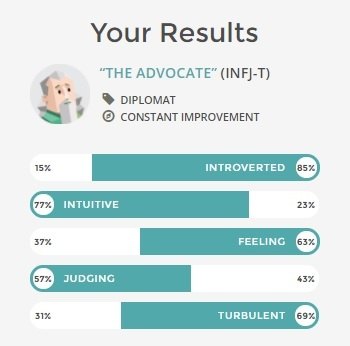Personality tests can help you work smarter instead of harder
When you know yourself, you can approach interpersonal relationships and work-related tasks in a way that best suits you. Taking a personality test can help you identify strengths and areas for improvement. The 16 Personalities Test is a great opportunity to learn more about yourself.
One of the best things about this test is that it’s rooted in a long-standing tradition of analyzing human behavior. Carl Jung’s scholarship on introversion and extroversion is a prominent building block for this test. In the 1940s, Katharine Briggs and Isabel Myers developed the Myers-Briggs Type Indicator Test.[1] This widely-used personality test uses the scholarly groundwork laid by Jung to identify 16 different personality types. The 16 Personalities Test incorporates elements of Jung’s personality theory with Myers-Briggs and the five factor model (The Big Five). The Big Five personality traits are extroversion, agreeableness, conscientiousness, neuroticism, and openness.[2]
Answer questions to find out what kind of person you are
The 16 Personalities Test asks a series of questions that analyze a test taker’s Mind, Energy, Nature, Tactics and Identity. The test can help you understand how you respond to your environment, process emotions, and make choices. It also gives you an objective measure of how confident you are with your decisions and abilities. The test compiles all of your answers and percentages to determine not only your personality type, but also what roles and strategies you’re most likely to adopt. Your answers also help the test figure out what strategies you use to get things done.
The results are shockingly accurate
I took the 16 Personalities Test, and the results described me to a T. I’ve taken a few personality tests in the past, including Myers-Briggs and True Colors.[3] Each one revealed some aspect of my personality. I was amazed at how many new insights I was able to have considering that I have taken several personality tests.
My character is classified as “The Advocate,” my role is “The Diplomat,” and my strategy is “Constant Improvement.” Advocates with diplomatic tendencies tend to be idealists who strive to take concrete action to make the world a better place. Diplomats work to mitigate struggles with empathy. Constant improvers are perfectionists who strive to master bodies of knowledge. My perfectionism has led me to reach a high-level of success, but it also makes me sensitive about criticism. Constructive feedback is always welcome, but if I make a mistake or the criticism is particularly harsh, I tend to spend a lot of time and energy trying to correct the problem and keep everyone happy. The 16 Personalities Test revealed that I am best suited for a job that offers me the opportunity to solve problems and lead. My personality type does not do well in a corporate setting, but I’m well-suited to run my own business in a field where I can help others. This explains so much about my leadership history and career path.
Why this test is better than other personality tests?
What I didn’t anticipate about this test was the way that it made me think about the people with whom I work. If you’re a leader or work with a team, encourage your employees and teammates take this test. It will help you understand their working style and competencies so that you can place them in roles in which they’re most likely to excel. The 16 Personalities Test takes less than 12 minutes, doesn’t require sign-up, and it’s free. When you complete the test, you’ll receive a comprehensive analysis about your personality. It does have a premium version that gives you a longer report and more information about ways that you can improve yourself based upon your unique personality. I’d recommend giving the free version a go, and if you like it, you can always upgrade. Take the 16 Personalities Test to learn something new about yourself.

